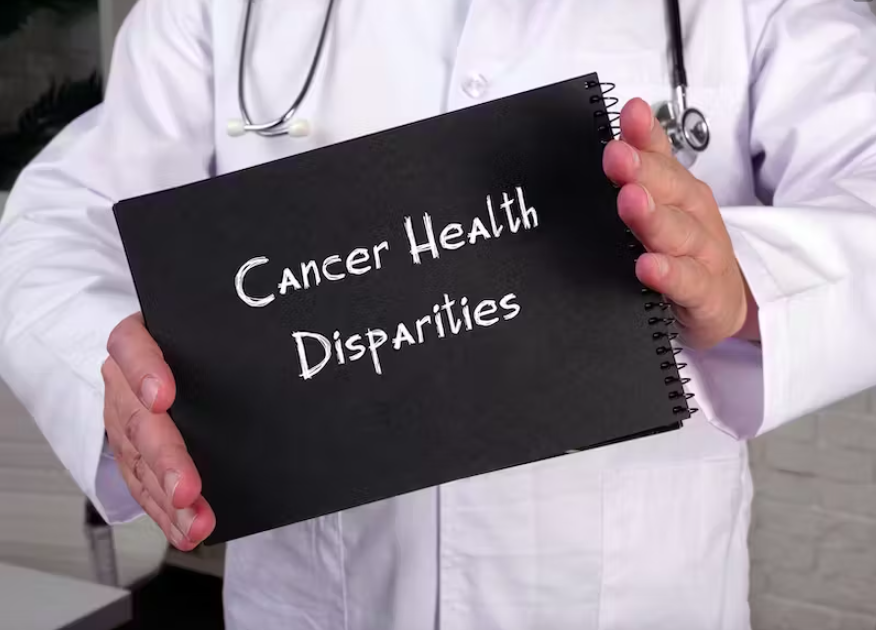
|22 February 2024
News
|31 January 2024

Last week, the National Minority Quality Forum (NMQF) and the CEO Roundtable on Cancer (CEORT) announced a comprehensive plan to address cancer care disparities. NMQF said it would scale a private-public partnership through its Cancer Stage Shifting Initiative to bring national and local resources to 10 majority-minority communities across the country.
This initiative aims to bridge the gaps in cancer prevention, early detection, and treatment in these vulnerable populations.
NMQF and CEORT released a report raising a national alarm about disparities in cancer risk, screening, prevalence, and mortality prevalent in medically underserved communities.
The report, called Cancer Moonshot, Public Policy, and Medically Underserved Cancer Care Communities, reveals that racial and ethnic minorities constitute 56 percent of people living within three kilometers of a carcinogenic waste-producing site. This proximity increases cancer risk for these communities, which the report says sheds light on an environmental justice issue that demands immediate attention. Black, Hispanic, Asian, and AIAN (American Indian and Alaska Native) populations face a lower overall rate of cancer screening due to systemic barriers. This has led to later-stage diagnoses, hindering timely access to care and treatment for these communities.
“Our report calls attention to two stark realities. First, historically marginalized populations often live and work in environments where toxicants in the air, water, and soil elevate their risk for cancer,” said Gary A. Puckrein, Ph.D., NMQF president and CEO, in a statement. “Secondly, in the very communities where public policy has elevated the risk for cancer through exposure to hazardous waste, public policy has also denied them access to the best modern cancer care. We echo President Biden’s call to action and emphasize that achieving the vision of the Cancer Moonshot requires urgent and sustained attention to cancer disparities.”
Speakers at a press conference included representatives from federal, state, and municipal government, pharmaceutical companies, national insurance companies, cancer experts, and community advocates. The collaborative approach underscores the importance of multi-sectoral engagement to address the multifaceted challenges faced by minority communities in the realm of cancer care.
“Cancer affects all of us, but the disease has a notably greater impact on communities of color. As a practicing oncologist, I see the importance of early cancer detection in each of my patients and know that working with the NMQF can help us achieve the White House’s goal of cutting cancer deaths in half through early detection, especially in vulnerable communities,” said Tom Beer, M.D., chief medical officer, Multi-Cancer Early Detection, Exact Sciences and Adjunct Professor of Medicine at the OHSU Knight Cancer Institute, in a statement.
The press conference included a satellite live stream from Flint, Mich., including U.S. Rep. Dan Kildee (D-MI), Mayor of Flint Sheldon Neeley, and community representatives in Houston, Texas.
Flint and Houston represent two majority-minority communities that have been rocked by significant environmental risk and rise in cancer cases. In 2020, the Michigan Department of Health and Human Services (MDHHS) confirmed that Flint’s increasingly higher poverty rates and population decline coincided with considerably higher cancer rates within certain areas of the city.
Flint’s increasingly higher poverty rates and population decline coincided with considerably higher cancer rates within certain areas of the city.
Last year, MDHSS announced a three-year environmental epidemiology cancer study for the city of Flint. “Communities like mine have suffered for far too long from poor access to basic health care services, like cancer screenings. That’s why I’m working to pass legislation that would close the gap and expand access to preventative healthcare services. I look forward to working alongside the National Minority Quality Forum to make Flint a healthier and stronger place for all,” said Rep. Kildee in a statement.
Houston’s Fifth Ward, a historically predominantly Black neighborhood, already has a designated cancer cluster. The city of Houston passed an initiative to set aside $5 million for the voluntary relocation of residents who live near a contaminated groundwater plume.
“The partnership fostered by the Biden Administration’s Moonshot program with Cancer Cluster communities nationwide is of paramount significance. The city of Houston is dedicated to engaging collaboratively with the White House, aiming to deliver an array of health resources, including cancer screening and diagnostic services, to the Fifth Ward,” said John Whitmire, Mayor of the City of Houston, in a statement.
Written by: David Raths
View the article on Healthcare Innovation: https://www.hcinnovationgroup.com/population-health-management/health-equity/news/53083744/cancer-initiative-to-bring-resources-to-10-majority-minority-communities
National Minority Quality Forum is a research and educational organization dedicated to ensuring that high-risk racial and ethnic populations and communities receive optimal health care. This nonprofit, nonpartisan organization integrates data and expertise in support of initiatives to eliminate health disparities.
 1201 15th Street, NW, Suite 340, Washington, DC 20005
1201 15th Street, NW, Suite 340, Washington, DC 20005
FOLLOW US ON: